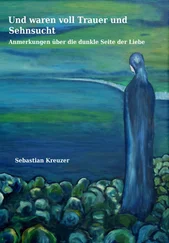Sebastian Junger - War
Здесь есть возможность читать онлайн «Sebastian Junger - War» — ознакомительный отрывок электронной книги совершенно бесплатно, а после прочтения отрывка купить полную версию. В некоторых случаях можно слушать аудио, скачать через торрент в формате fb2 и присутствует краткое содержание. Город: New York, Год выпуска: 2010, ISBN: 2010, Издательство: Twelve, Жанр: Публицистика, nonf_military, на английском языке. Описание произведения, (предисловие) а так же отзывы посетителей доступны на портале библиотеки ЛибКат.
- Название:War
- Автор:
- Издательство:Twelve
- Жанр:
- Год:2010
- Город:New York
- ISBN:978-0-446-56976-7
- Рейтинг книги:5 / 5. Голосов: 1
-
Избранное:Добавить в избранное
- Отзывы:
-
Ваша оценка:
- 100
- 1
- 2
- 3
- 4
- 5
War: краткое содержание, описание и аннотация
Предлагаем к чтению аннотацию, описание, краткое содержание или предисловие (зависит от того, что написал сам автор книги «War»). Если вы не нашли необходимую информацию о книге — напишите в комментариях, мы постараемся отыскать её.
, Sebastian Junger (
) turns his brilliant and empathetic eye to the reality of combat—the fear, the honor, and the trust among men in an extreme situation whose survival depends on their absolute commitment to one another. His on-the-ground account follows a single platoon through a 15-month tour of duty in the most dangerous outpost in Afghanistan’s Korengal Valley. Through the experiences of these young men at war, he shows what it means to fight, to serve, and to face down mortal danger on a daily basis.
War — читать онлайн ознакомительный отрывок
Ниже представлен текст книги, разбитый по страницам. Система сохранения места последней прочитанной страницы, позволяет с удобством читать онлайн бесплатно книгу «War», без необходимости каждый раз заново искать на чём Вы остановились. Поставьте закладку, и сможете в любой момент перейти на страницу, на которой закончили чтение.
Интервал:
Закладка:
“Oh, yeah, everyone’s got their favorite weapon,” Jones told me. “There are Mark guys and .50 guys. Walker’s a Mark guy. The Mark is an automatic grenade launcher that shoots a 40 mike-mike round that explodes on impact. I’m a .50 guy. I don’t know if it’s true, but they say the round only has to come within eighteen inches of you to sear flesh. That’s badass. It doesn’t have to hit you and it can still tear you open. It’s just a sexy weapon. It’s the ultimate machine gun. It has the ability to shoot through walls. It’s fun to shoot during a test fire but it’s twice as fun during a firefight.”
The one absolute impossibility at Restrepo — you could even get booze if you wanted — was sex with a woman, and the one absolute impossibility back home was combat. Whether the men realized it or not, they had made a rough trade where one risked becoming a stand-in for the other. The potential for humor was enormous, but even when no one was joking, things could still sound awfully funny. “It doesn’t need much oil but if you give it too much it’ll rock that much more,” I overheard O’Byrne telling Vaughn about the .50 cal. “If your shit gets sluggish in a firefight just pour oil all over the bolt and it’ll pick right back up.”
If you’re nineteen and haven’t gotten laid in a year, a sentence like that — meant in all sincerity about a very serious matter — can resonate through your psyche in ways you don’t even understand. (There was a hill across the valley that the men referred to as “Nipple Rock,” and all I can say is that you’d have to have spent a goddamn long time in the valley to see a woman’s nipple in that thing.) There was so much sexual energy up at Restrepo that it might as well have been a Miami nightclub, except that the only outlet for it was combat, so that’s what the men spent their time thinking about. Once a firefight kicked off and I watched Hoyt and Alcantara race into the east bunker to claim the .50. Hoyt had the lead but Alcantara threw him out of the way and got there first and started firing. They took turns on the gun until the firefight died down and then they settled back in the bunker with cigarettes. They’d shot through so much ammo that the barrel was smoking and they had to pour oil on it to cool it down. Suddenly another burst came in. “ Yes! ” Hoyt whooped as he got back on the gun. “I knew this shit wasn’t over yet…”
Most of the fighting was at four or five hundred yards, so no one ever got to see — or had to deal with — the effects of all that firepower on the human body. There were exceptions, though. One day Prophet called in saying they’d overheard enemy fighters discussing how they wouldn’t shoot at the Americans unless a patrol crossed to the east side of the valley. Soon afterward, Afghan soldiers at OP 3 spotted armed men in the riverbed and started shooting at them. The men fled up the flanks of the Abas Ghar and Third Platoon sent a patrol out of the KOP to give chase. The Americans took contact as soon as they crossed the river and found themselves badly pinned down behind a rock wall, and within seconds every American position in the valley opened up on the guys who were shooting at them. The KOP started dropping mortars and OP 3 engaged with a .50 cal and a Barrett sniper rifle, and the trucks opened up from above Babiyal, and Restrepo swung its 240s around and poured gunfire across the valley for almost an hour.
It was a hot day and there hadn’t been much fighting lately, so when the men jumped on the guns most of them were only wearing flip-flops and shorts. They joked and laughed and called for cigarettes between bursts. Once in a while a round would crack past us, but mostly it was just a turkey shoot at a wide-open mountainside where the enemy had nowhere to hide. Hot brass was filling up the fighting positions and more was cascading down out of the weapons every second. At one point I watched a shell drop into Pemble’s untied shoe and he slipped it off, wiggled the shell out, and then slipped his shoe back on without ever stopping firing. The lieutenant was shirtless on the ammo hooch calling coordinates into the KOP and some of the Afghans were firing from the hip even though they didn’t stand a chance of hitting anything that way and Jackson was up on the guard position unloading one of the SAWs. Restrepo alone had to be putting out a thousand rounds a minute and the Abas Ghar was sparkling with bullet strikes even though it was broad daylight. Finally Hog showed up — Hog was the radio call sign for the A-10s — and dropped a couple of bombs on the mountain for good measure.
At some point a call came in over the radio that the Scouts were watching a guy crawl around on the mountainside without a leg. They watched until he stopped moving and then they called in that he’d died. Everyone at Restrepo cheered. That night I couldn’t sleep and I crept out of my bunk and went and sat on the roof of the ammo hooch. It was a nice place to watch the heat lightning out along the Pech or to lie back on the sandbags and look up at the stars. I couldn’t stop thinking about that cheer; in some ways it was more troubling than all the killing that was going on. Stripped of all politics, the fact of the matter was that the man had died alone on a mountainside trying to find his leg. He must have been crazed with thirst and bewildered by the sheer amount of gunfire stitching back and forth across the ground looking for him. At one point or another every man in the platoon had been pinned down long enough to think they were going to die — bullets hitting around them, bodies braced for impact — and that’s with just one or two guns. Imagine a whole company’s worth of firepower directed at you. I got the necessity for it but I didn’t get the joy. It seemed like I either had to radically reunderstand the men on this hilltop or I had to acknowledge the power of a place like this to change them.
“You’re thinking that this guy could have murdered your friend,” Steiner explained to me later. “The cheering comes from knowing that that’s someone we’ll never have to fight again. Fighting another human being is not as hard as you think when they’re trying to kill you. People think we were cheering because we just shot someone, but we were cheering because we just stopped someone from killing us. That person will no longer shoot at us anymore. That’s where the fiesta comes in.”
Combat was a game that the United States had asked Second Platoon to become very good at, and once they had, the United States had put them on a hilltop without women, hot food, running water, communication with the outside world, or any kind of entertainment for over a year. Not that the men were complaining, but that sort of thing has consequences. Society can give its young men almost any job and they’ll figure how to do it. They’ll suffer for it and die for it and watch their friends die for it, but in the end, it will get done. That only means that society should be careful about what it asks for. In a very crude sense the job of young men is to undertake the work that their fathers are too old for, and the current generation of American fathers has decided that a certain six-mile-long valley in Kunar Province needs to be brought under military control. Nearly fifty American soldiers have died carrying out those orders. I’m not saying that’s a lot or a little, but the cost does need to be acknowledged. Soldiers themselves are reluctant to evaluate the costs of war (for some reason, the closer you are to combat the less inclined you are to question it), but someone must. That evaluation, ongoing and unadulterated by politics, may be the one thing a country absolutely owes the soldiers who defend its borders.
There are other costs to war as well — vaguer ones that don’t lend themselves to conventional math. One American soldier has died for every hundred yards of forward progress in the valley, but what about the survivors? Is that territory worth the psychological cost of learning to cheer someone’s death? It’s an impossible question to answer but one that should keep getting asked. Ultimately, the problem is that they’re normal young men with normal emotional needs that have to be met within the very narrow options available on that hilltop. Young men need mentors, and mentors are usually a generation or so older. That isn’t possible at Restrepo, so a twenty-two-year-old team leader effectively becomes a father figure for a nineteen-year-old private. Up at Restrepo a twenty-seven-year-old is considered an old man, an effeminate Afghan soldier is seen as a woman, and new privates are called “cherries” and virtually thought of as children. Men form friendships that are not at all sexual but contain much of the devotion and intensity of a romance. Almost every relationship that occurs in open society exists in some compressed form at Restrepo, and almost every human need from back home gets fulfilled in some truncated, jury-rigged way. The men are good at constructing what they need from what they have. They are experts at making do.
Читать дальшеИнтервал:
Закладка:
Похожие книги на «War»
Представляем Вашему вниманию похожие книги на «War» списком для выбора. Мы отобрали схожую по названию и смыслу литературу в надежде предоставить читателям больше вариантов отыскать новые, интересные, ещё непрочитанные произведения.
Обсуждение, отзывы о книге «War» и просто собственные мнения читателей. Оставьте ваши комментарии, напишите, что Вы думаете о произведении, его смысле или главных героях. Укажите что конкретно понравилось, а что нет, и почему Вы так считаете.












